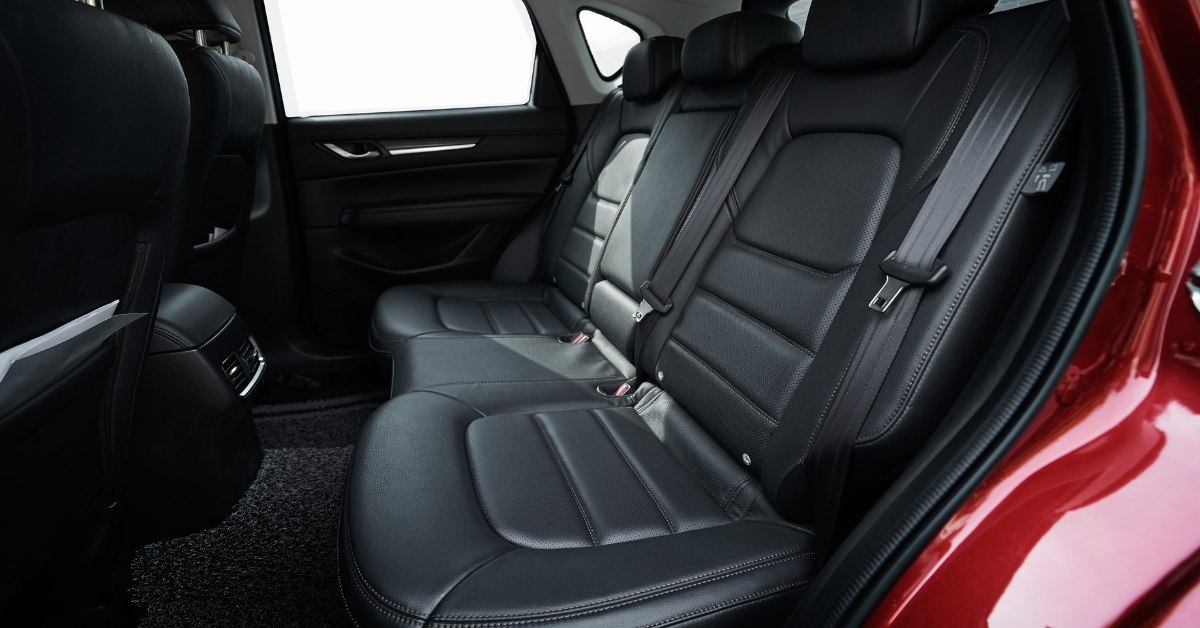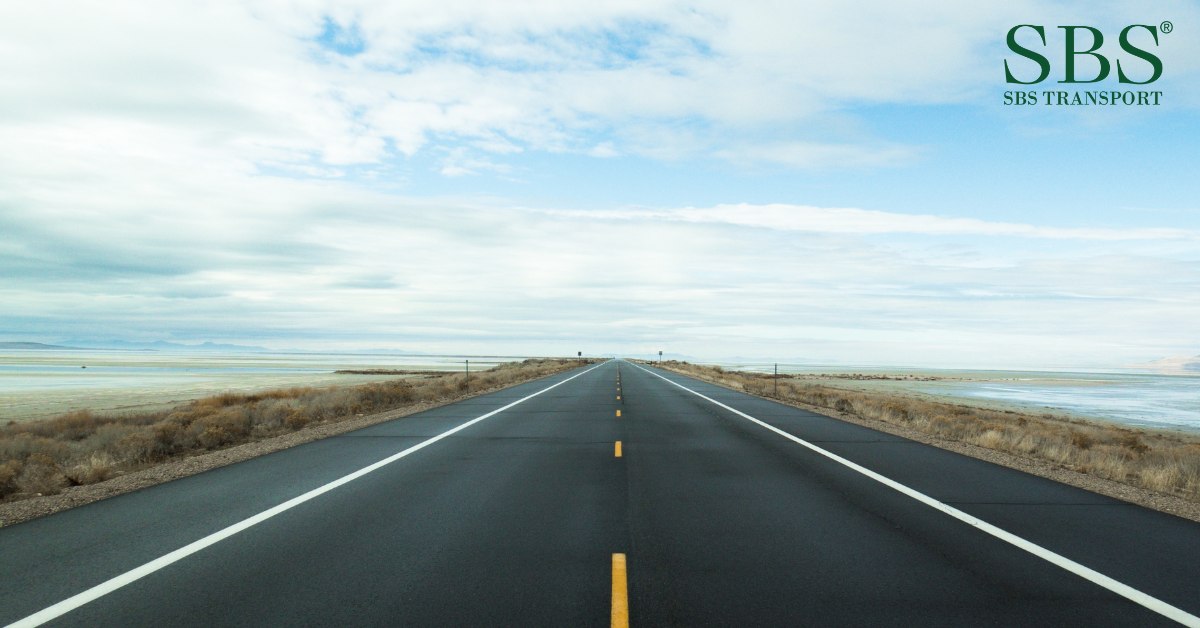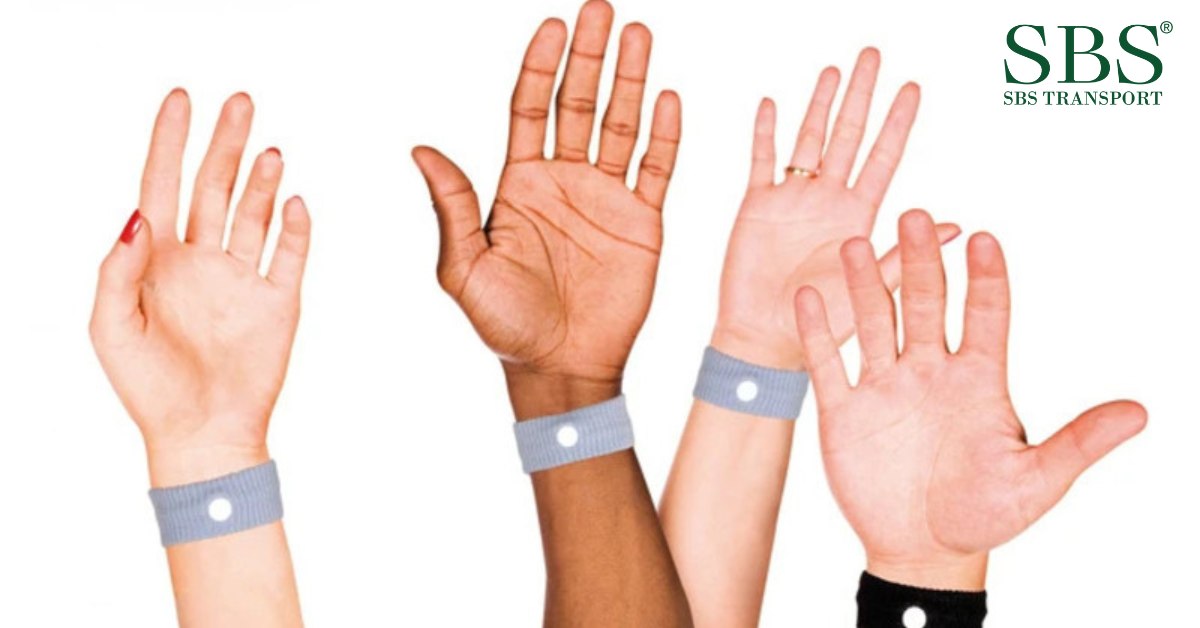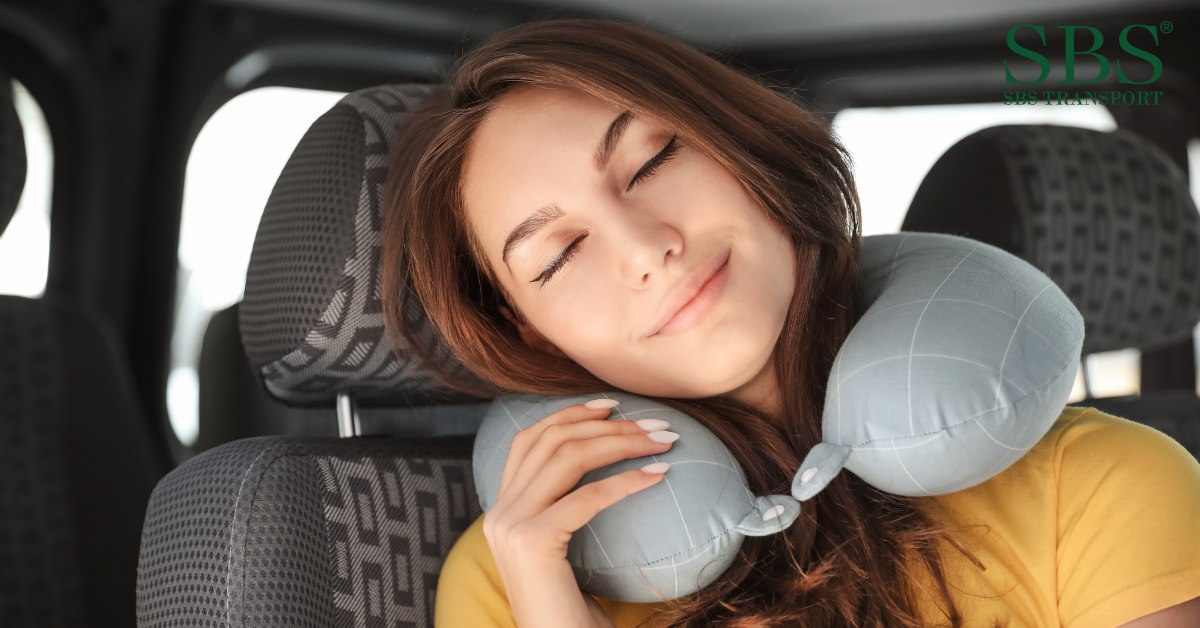Motion sickness is a common struggle for many people traveling by car, bus, or boat. This article provides 10 effective ways to prevent motion sickness, helping you enjoy a more comfortable and pleasant journey. Discover the causes, symptoms, and practical tips to always be prepared for any trip with SBS Transport!
What is Motion Sickness?

Motion sickness is a sensory disorder that occurs when traveling in vehicles such as cars, trains, ships, or airplanes. It is caused by a conflict between information from the visual system and the vestibular system in the ear, leading to discomfort and symptoms such as nausea, dizziness, and fatigue.
Who is Prone to Motion Sickness?
Motion sickness can affect anyone but is more common in:
- Children: Their nervous systems are not fully developed, making them more sensitive.
- Women: Often more sensitive to changes in the environment.
- Infrequent travelers: Their bodies are not accustomed to continuous movement and vibrations.
- People with a history of neurological disorders: Those with vestibular issues or other neurological sensitivities are more prone to motion sickness.
Causes of Motion Sickness
Motion sickness occurs when there’s a mismatch between sensory inputs. While traveling, sensory organs like the vestibular system (the inner ear’s balance system) and the eyes receive different signals, causing discomfort. Specific causes include:
- Conflict between the vestibular system and vision: When seated, the eyes detect rapid movement outside, but the body itself does not feel the same movement. This inconsistency confuses the nervous system, leading to motion sickness.
- Inconsistent changes in speed and direction: Vehicles often move with varying speed and turns, requiring the body to constantly adjust, which can cause dizziness and nausea.
- Psychological factors: Anxiety about a long trip can make the body more sensitive, increasing the likelihood of motion sickness.
- Confined spaces and odors in the vehicle: Smells from air conditioning, upholstery, or fuel can trigger motion sickness. Lack of fresh air can also heighten sensitivity, causing discomfort.
- Infrequent travel: Those who don’t often use public transportation or vehicles are more prone to motion sickness due to unaccustomed movements.
Symptoms of Motion Sickness
Common symptoms of motion sickness include:
- Nausea and vomiting
- Dizziness and loss of balance
- Cold sweats
- Fatigue and lethargy
- Headache or a feeling of lightheadedness
10 Effective Ways to Prevent Motion Sickness
Here are some practical methods to reduce or prevent motion sickness. You can try one or combine several for the best results:
1. Choose seats with minimal movement

Front seats near the driver or central seats in vehicles tend to be more stable, reducing the risk of motion sickness. On a train, choose a seat near the center, and on a plane, sitting over the wings minimizes turbulence.
2. Breathe fresh air

Open windows or use ventilation to reduce unpleasant odors and create a refreshing environment. If windows can’t be opened, use a handheld fan or scented mask for comfort and to ease symptoms.
3. Focus on a fixed point

Concentrating on a fixed point like the horizon reduces conflict between the eyes and vestibular system, minimizing nausea. Avoid looking down at a phone or reading, as this requires constant adjustment, increasing dizziness.
4. Chew on ginger or drink ginger tea

Ginger is a natural remedy for motion sickness, soothing the stomach and reducing nausea. Chewing fresh ginger or drinking ginger tea about 30 minutes before travel can help ease discomfort during the journey.
5. Get enough sleep before traveling

A full night’s sleep helps the body prepare and relax for continuous movement. Fatigue increases nervous system sensitivity, making motion sickness worse. Ensure you’re well-rested before starting any trip.
6. Avoid heavy meals and carbonated drinks

Eating too much before traveling can make the stomach feel full, worsening nausea. Instead, eat lightly and avoid greasy, hard-to-digest foods. Carbonated drinks can cause bloating and discomfort during travel.
7. Use anti-nausea wristbands

Wristbands with pressure points at the P6 acupressure point on the wrist can reduce nausea and dizziness. This is a natural option, especially for those who prefer not to take medication.
8. Take motion sickness medication

Medications like meclizine and dimenhydrinate can be taken as directed by a doctor. They should be taken about 30 minutes before travel to prevent symptoms. Note that some medications may cause drowsiness, so avoid them if you need to stay alert.
9. Practice deep breathing and relaxation techniques

Deep and steady breathing helps relax the body, stabilize sensations, and soothe the nervous system. Try inhaling deeply, holding for a few seconds, and exhaling slowly. Repeating this process can reduce tension, ease symptoms, and calm digestion.
10. Avoid electronic devices or reading while moving

Reading or using a phone while the vehicle is moving can disturb the balance between vision and the body’s movement perception, leading to dizziness and nausea. For entertainment, try listening to light music or talking with travel companions, which can help distract from discomfort.
Motion sickness is an uncomfortable experience that many people face, especially during long journeys or on vehicles with strong vibrations. However, by applying the preventive measures mentioned above, you can minimize or completely prevent the sensation of motion sickness, allowing you to enjoy a more comfortable journey.



